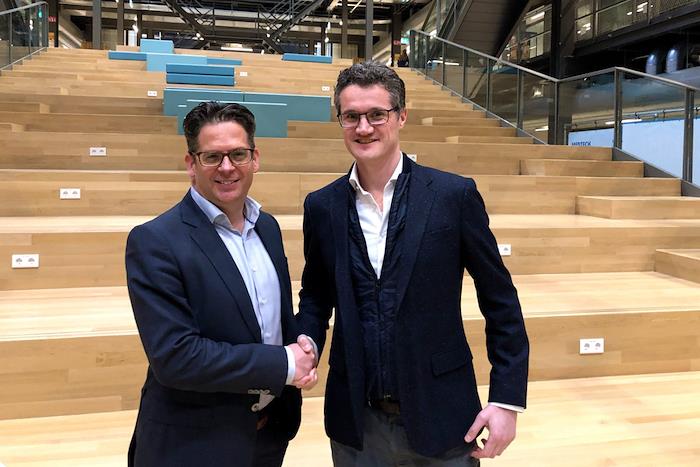In short
- Renovating and modifying existing buildings is crucial within the energy transition
- Researches from the UT are helping with this by developing feasible and affordable renovation concepts.
Global Goal

The Bouw en Techniek Innovatie Centrum (Construction and Technology Innovation Centre, BTIC), “Flywheel for a climate-neutral and CO2-free built environment”, is committed to making existing buildings sustainable. They set the goal of commissioning 80,000 homes and buildings per year in five years, and 200,000 homes per year by 2030, by developing new renovation concepts. The main goal: making all homes in the Netherlands energy-neutral by 2050. Researches from the UT, including Arjen Adriaanse and Erwin Hofman, are joining forces to contribute to these objectives.
Related article(s)
There is no doubt that the energy transition and making the built environment sustainable are top priorities, but how do we make it feasible and affordable? According to Arjen Adriaanse: “Traditional methods and techniques are still used too often to make the available housing stock energy efficient. Unfortunately, they are unnecessarily expensive and not very flexible. Applying modular design principles makes renovation concepts more scalable and, therefore, more affordable. It also increases the ease and speed with which solutions can be tailored to individual customer requirements, and how quickly they can be realised.”

The researchers from the entrepreneurial University of Twente propose “modular design principles” as a solution for the renovation. What does this mean? Erwin Hofman explains: “Design and production processes can be digitised using these modular principles, which in turn forms the basis for the industrialised processes and chain integration, in the form of a digital business platform.” With modular construction, standard components are produced in advance in the factory and then incorporated into a building. This is, of course, more efficient, making it more affordable.
Date: 13 February 2020 |
Source of tekst: Universiteit Twente |
Author: twente.com





